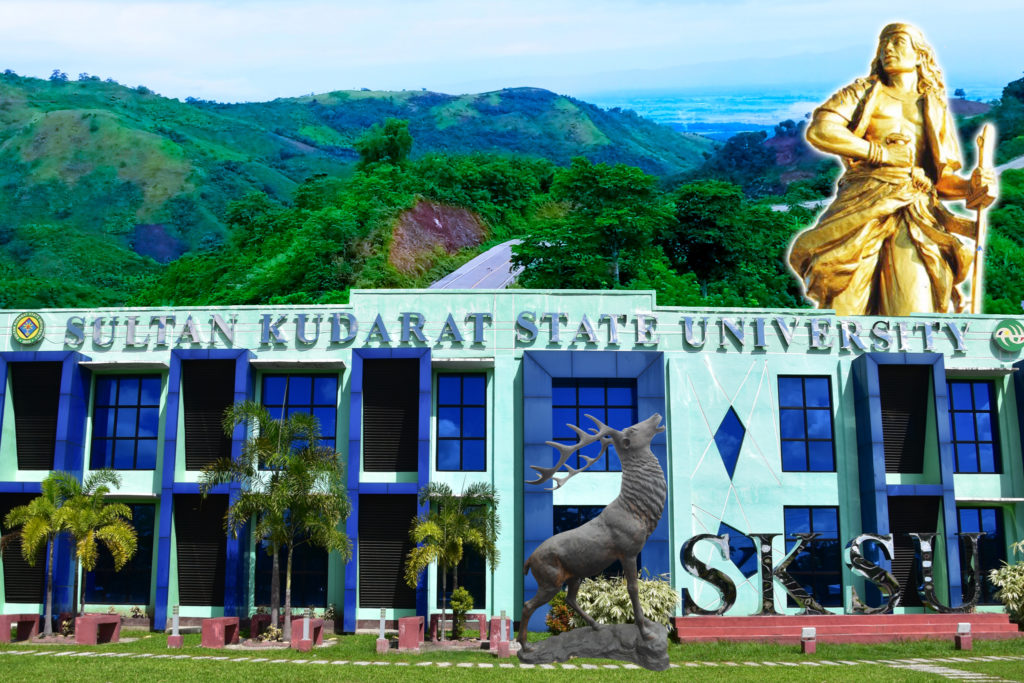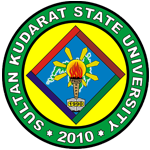
The Sultan Kudarat State University (SKSU) formerly Sultan Kudarat Polytechnic State College was established on December 5, 1990, by virtue of a bill authored in Congress by then Cong. Estanislao V. Valdez and sponsored in the Senate by then Sen. Edgardo J. Angara.
The bill became Republic Act 6973, otherwise known as the Sultan Kudarat Polytechnic State College (SKPSC) Charter, which merged five (5) previously DECS – supervised High Schools in five (5) municipalities of the province, namely; the Sultan Kudarat National High School in Isulan, the Lutayan National Agricultural School in Lutayan, the Tacurong Municipal High School in what is now Tacurong City, the Kalamansig Municipal High school in Kalamansig and the Palimbang Municipal High School in Palimbang. Its central site and main office is in SKSU – ACCESS, EJC Montilla, Tacurong City.
The Institution started under the visionary and dynamic leadership of its first and longest-serving President, Dr. Nelson T. Binag, who, later, also initiated the operation of extension programs in the municipalities of Sen. Ninoy Aquino and Bagumbayan in Sultan Kudarat and in Glan, Sarangani Province through a Memorandum of Agreement with the Local Government Units and Surallah in South Cotabato with Surallah National Agricultural School.
Dr. Nelson T. Binag, the 1st President of SKPSC served for a period of eighteen (18) years. His unique leadership brought SKPSC to a milestone. Through an intensified faculty and staff development program, numerous scholarship programs, attended to by the college personnel in the local, national and international levels. The strong impetus given by the administration to qualify its personnel has gone through the roof. Statistically, it has produced a number of Master’s and Doctor’s degree holders. Guided by its pragmatic policies, SKSU continues to offer programs and special courses that help totally develop locally homegrown industries utilizing indigenous resources and raw materials peculiar to the locality where the campuses are located. Agriculture-related courses are offered in the College of Agriculture located in Lutayan while Fishery-related courses are offered in the College of Fisheries in Kalamansig, Sultan Kudarat.
The Colleges of Arts and Sciences, Bachelor of Science in Hotel and Restaurant Management Bachelor of Accounting Technology, Bachelor of Science in Criminology and other Liberal and Science courses in Tacurong City campus, drawing enrollees not only in the Province but also in the nearby cities of Koronadal, General Santos and Davao. Engineering, Information Science and Industrial Technology courses are offered in the College of Engineering, Information Science and Industrial Technology in Isulan the capital town of the Province. From the usual four-year technical courses, a five-year course in Computer Engineering is also offered along with short term courses in Driving, Building Wiring Construction, Automotive and Computer Literacy among others. Palimbang, an extension campus of the& of Teacher Education offers education programs while the newly opened campuses in Bagumbayan and Senator Ninoy Aquino offer academic as well as agriculture-related courses.
In the ACCESS, postgraduate studies in Management, Institutional Development and Management,Agricultural Science and Technology and Diploma in Teaching are offered while undergraduate courses in education are offered in the College of Teacher Education.
Pursuant to its Vision and Mission, SKSU opened the College of Law and the College of Nursing. The Laboratory High School exhibits its prowess in national and even in international competitions, an evidence of quality and excellence.Significantly, the Sultan Kudarat State University has been rated Level III-A in the SUC leveling. Having subjected itself to accreditation, SKSU is at par with other leading institutions in the country. The alliances and partnerships with international organizations and institutions brought SKSU into the realm of the global world. During the last three years of Dr. Binag’s term, he started preparing for the Institution’s conversion into a University, but, did not prosper.
With the installation of the next President, Dr. Teresita L. Cambel, she pursued the dream of Universityhood. On January 18, 2010, on sponsorship by then Cong. Pax S. Mangudadatu, Al Hadj and Cong. Arnulfo F. Go in Congress,as well as, by Sen. Manuel A. Roxas, Sen. Edgardo J. Angara, Sen. Panfilo M.Lacson and Sen. Juan Miguel F. Zubiri in the Senate, Republic Act No.9966 was enacted converting what was then Sultan Kudarat Polytechnic State College into what is now Sultan Kudarat State University.
Dr. Rolando F. Hechanova, the 3rd President of SKSU took his oath of office on August 12, 2014. Characterized by his deep sense of commitment, dedication to public service guided by the acronym FATES which means,
F-airness, A-ccountability, T-ransparency, E-xcellence and S-ervice to GOD and People.
He was able to spur various developments and initiatives in the University ranging from the infrastructures; promotions of faculty through the implementation of NBC 461, Cycles 4-7; grant of Collective Negotiation Agreement (CNA) incentives; more accredited programs in the various colleges by the Accrediting Agency of Chartered Colleges and Universities in the Philippines (AACCUP), more Commission on Higher Education (CHED) compliant curricular programs; increased passing percentage rate in the licensure examination; strengthened the mandated functions of the University; and, more linkages in the national and international partnership via research and extension programs.
SKSU’s journey in history and its development is greatly attested by the increase in student and personnel population, the number of graduates it has produced from the numerous program offerings, the facilities and structures it has put in place, linkages and partnerships it has forged with government and non-government organizations and most importantly, its reputation as provider of quality and affordable education.
To date, the SKSU administration, teaching and non-teaching personnel and the whole studentry never cease to work tediously and cooperatively to reach the apex of its development.
